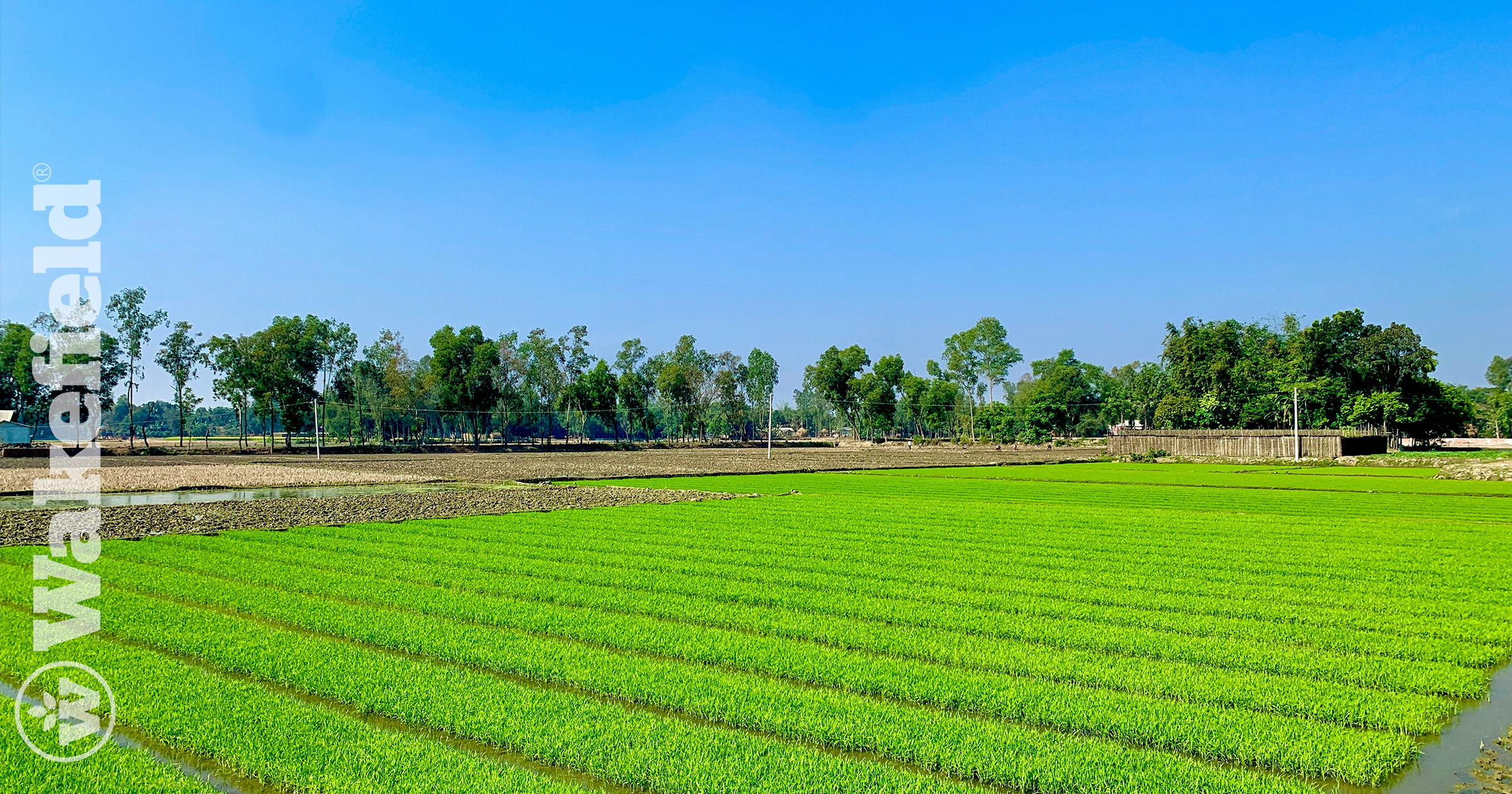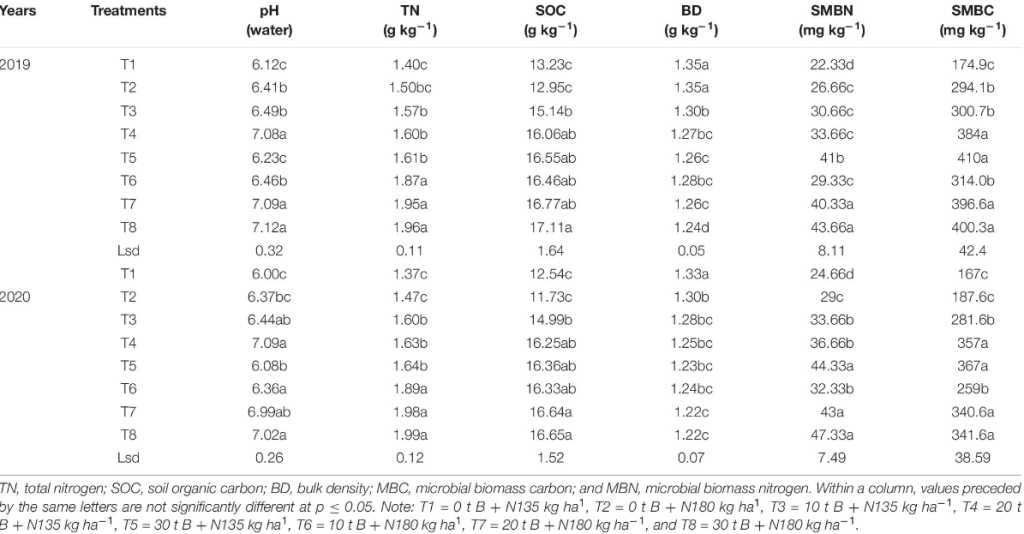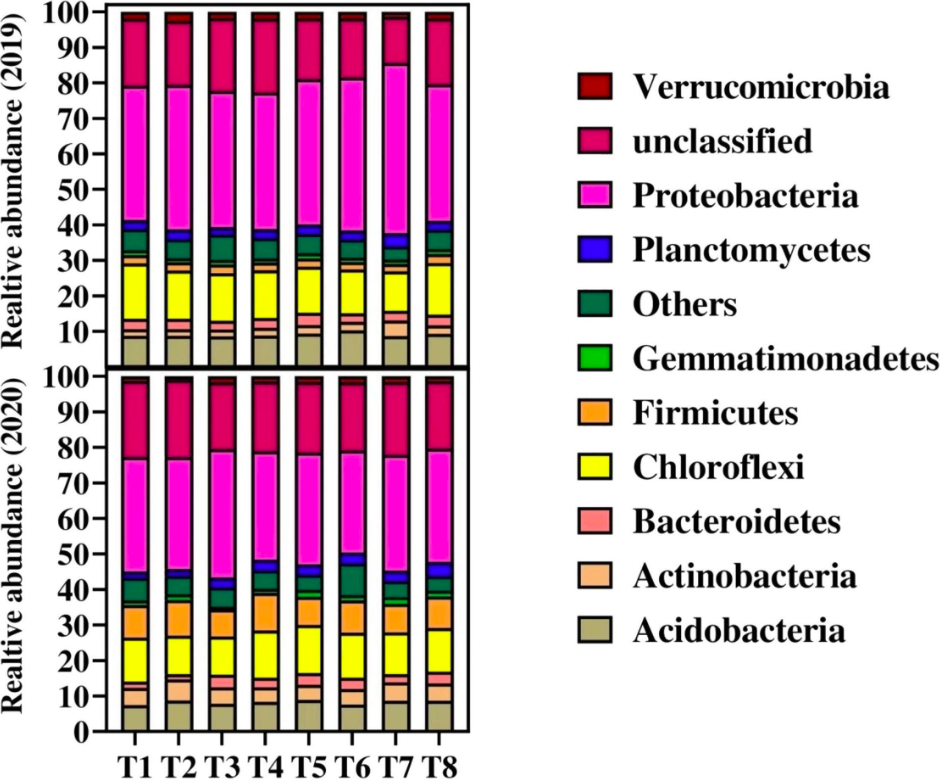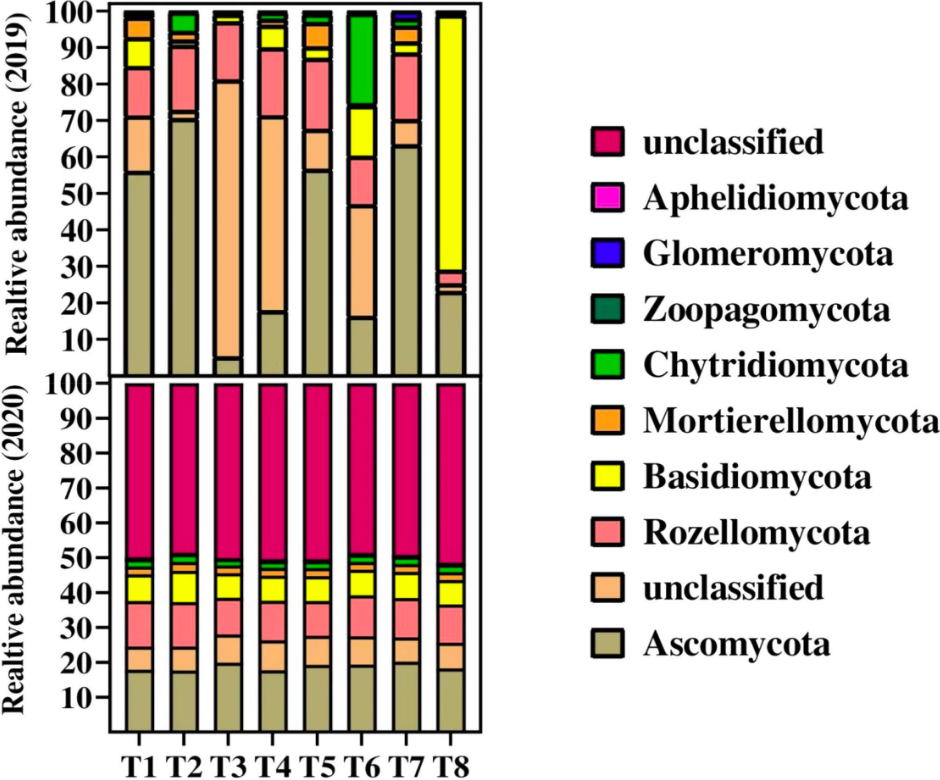Biochar Amendment and Nitrogen Fertilizer Contribute to the Changes in Soil Properties and Microbial Communities in a Paddy Field

[wf-scholarly-article title=”Biochar Amendment and Nitrogen Fertilizer Contribute to the Changes in Soil Properties and Microbial Communities in a Paddy Field” authors=”Ali Izhar , Yuan Pengli , Ullah Saif , Iqbal Anas , Zhao Quan , Liang He , Khan Abdullah , Imran , Zhang Hua , Wu Xiaoyan , Wei Shanqing , Gu Minghua , Jiang Ligeng” publication=”Frontiers in Microbiology” year=”2022″ doi=”10.3389/fmicb.2022.834751″ url=”https://www.frontiersin.org/journals/microbiology/articles/10.3389/fmicb.2022.834751/full”]
Biochar can change how tiny organisms in the soil, called microbes, behave. But, we don’t know much about how it works when used with synthetic nitrogen fertilizer in paddy fields. Researchers wanted to fill this gap by testing different combinations of biochar and nitrogen fertilizer to see how they affect soil, microbes, and rice growth. They tried eight different combinations, with different amounts of biochar (0, 10, 20, and 30 tons per hectare) and nitrogen (135 and 180 kilograms per hectare). The results? Using both biochar and nitrogen together made the soil better and increased rice yield compared to using just nitrogen. Plus, they noticed that some combinations of biochar and nitrogen increased the levels of helpful microbes in the soil, which could help crops grow even better.
Biochar in Action
The experiment was set up in a field using a random design, with three copies of each test area. The plots measured 3.9 by 6 meters. They studied the plots over two years, from 2019 to 2020. During that time, they looked at four levels of biochar (0, 10, 20, and 30 tons per hectare) and two levels of nitrogen (135 and 180 kilograms per hectare). They put biochar on the soil once in 2019 and added nitrogen both years.
Soil microorganisms are essential for soil health and farming success, impacting nutrient release and plant growth. Biochar, made from organic waste, boosts soil quality and microbial activity when combined with nitrogen fertilizer. Research, like this study, aims to develop sustainable farming practices, improving crop productivity while reducing chemical fertilizer use.
Results
Combining biochar and mineral nitrogen led to significant soil improvements compared to using only chemical nitrogen. Higher biochar levels consistently enhanced soil quality across both years, with increased pH, nitrogen, carbon, and microbial activity. Soil density decreased in plots with more biochar. Throughout both years, plots with higher biochar levels consistently had greater microbial activity.
The findings from Ali et al. (2022) illustrate the powerful benefits of combining biochar with nitrogen fertilizer in paddy fields. This dynamic duo not only enhances soil health but also boosts rice yield and fosters beneficial microbial activity. By incorporating sustainable practices like biochar application, farmers can achieve better crop productivity while reducing reliance on chemical fertilizers. This research offers valuable insights for developing eco-friendly farming techniques, paving the way for a greener and more productive future in agriculture. Whether you’re a seasoned farmer or a curious gardener, these results highlight the promising potential of biochar to revolutionize soil management and crop production.








